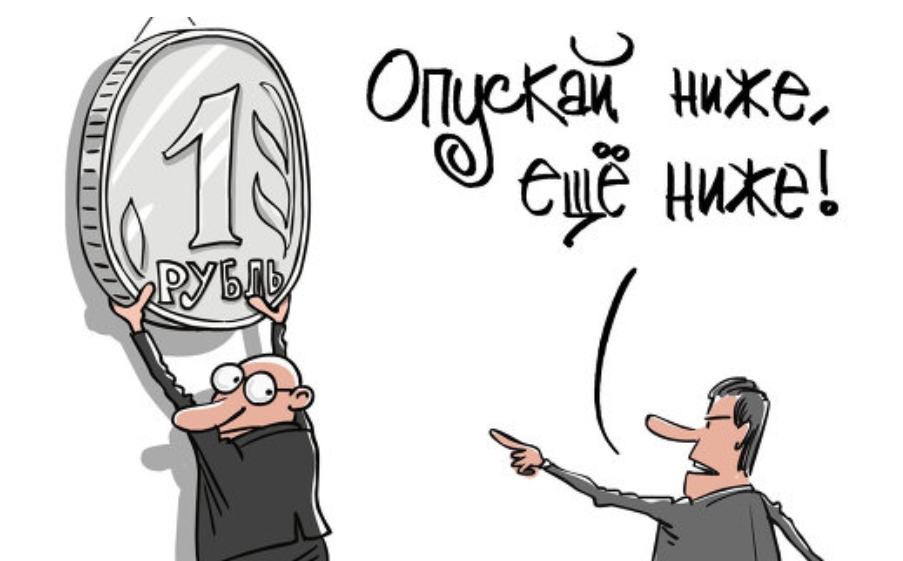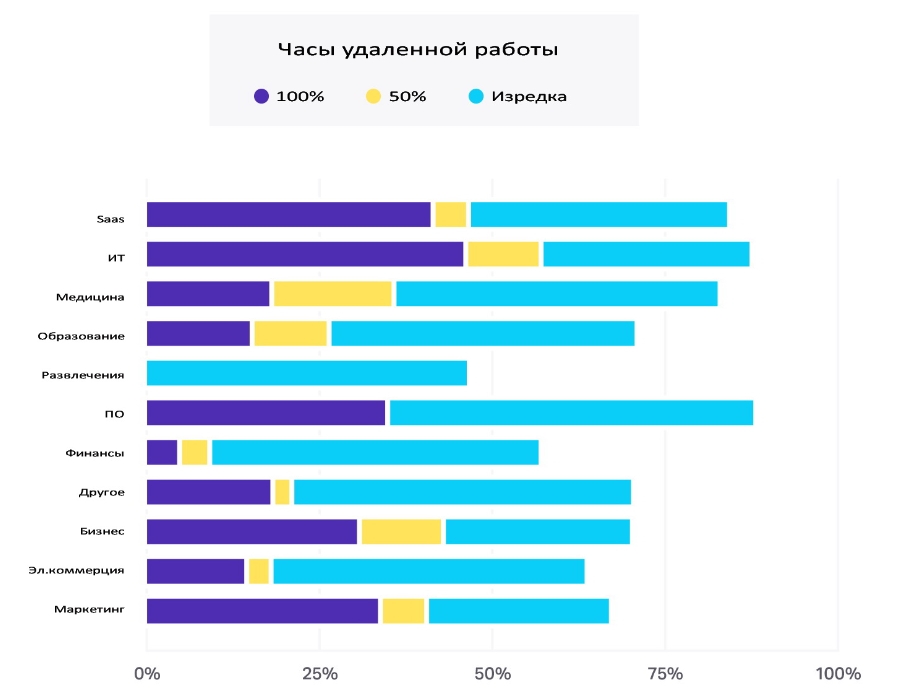Those. support. How much money can you make on this? (Part 2 - "Abroad")
Most recently, we, the developers of the cloud Help Desk system , have published our own research of salaries in the technical support market in Russia with figures and conclusions obtained from the analysis of vacancies of more than 1000 companies. But what place does Russian tech support take in the global industry? Is it even possible to compare the markets? Are there any prospects for a Russian specialist abroad? Let's figure it out!

Before turning to the comparison of figures, it is worth noting that usually when discussing “there” and “with us” we are talking about different support. As we saw in our study, in Russia there is practically no separation between technical and customer support, so all the numbers are mixed “in one pot”. In the west, technical support is a subset of client support, which is most often reflected in vacancies. This affects both the terms of reference and the salary offered.
It is rather difficult to compare markets and revenues in such conditions. But we tried to do this using the annual “2017 Customer Support Salary Study” as a basis. It is anonymous and covers both men and women working in customer support in a broad sense (the technical segment is highlighted by the question of whether abstract technical skills are necessary in the work; this criterion does not give precise division, but high detail does not help us, since there is no accuracy in our market). This year, more than 500 specialists from around the world took part in the survey.
')
The authors of the report try to take into account differences in the cost of living and average wages in different regions, but with regard to our situation, it is worth remembering about currency fluctuations.

And one more important aspect. These figures - this is income before taxes, and he, as you know, from the point of view of an employee abroad is usually up to 50% .

The average annual income of specialists excluding the country, industry, and skills is $ 57,686 (~ 300,000 rubles / month, hereinafter, before taxes) . Formally, this figure was reduced compared with the results of similar studies of previous years, but the reason here is not at all in the reduction of incomes of individual specialists, but in the change in the sample that participated in the study. There are more respondents from lower levels, from lower-income countries, as well as part-time workers. Individual incomes of research participants, who give answers for more than a year, have remained at the same level or increased.
Average incomes vary by industry. The largest money, as it turned out, is paid in supporting SaaS projects ($ 63,651 per year or ~ 320,000 rubles / month), and the smallest - in marketing companies ($ 42,128 per year or ~ 210,000 rubles / month).
By the way, we, developing the cloud Help Desk system, Okdesk, and, of course, providing support to customers, we perfectly understand what it is in our segment that we have to pay for. There are many customers, but they are with their own industry specifics. The product, though boxed, is designed to automate not the simplest processes. And because each treatment requires immersion in the specifics of the client business and finding the optimal solution (and sometimes providing expert advice on the organization of processes in accordance with our experience or the experience of "the best dog breeders" ).
In addition, all requirements and suggestions are considered in detail for subsequent implementation in Okdesk itself. We described in detail last year how we are balancing between the long-term strategy and the “wishes” of our clients.

Comparison of the results of the survey in 2017 with previous years shows that the difference in income between men and women in support is gradually disappearing. This year, the average salary of women was 94.6% of the average salary of a man (against the background of 94.4% last year).
Interestingly, women get a little more at the initial level of a career in support, and at higher levels their incomes fall relative to the growth of income of men. With increasing experience, the share of women in support decreases (similarly, the share of women occupying leadership positions is less).
In client support, candidates are offered promotion on the career ladder. To analyze the income at each of the official levels, the questionnaires of respondents were divided into the following positions:
Naturally, the minimum income is offered on the first of the listed levels, the maximum - on the last (income is indicated for the year).

Support may require a variety of skills, but all specialists in the West are divided into, as we wrote earlier:
In Russia, as shown by our own research , the concepts of customer and technical support are often confused, and the authors of foreign analysts have divided the audience quite clearly, asking everyone the question: “Do you provide technical support?” .
The results show that technical skills play a large role in the average salary range (no longer a beginner, but not yet a director). However, the study did not reveal any fundamental differences in salaries between client and technical support specialists. On average, "techies" get a little more ($ 57,198 per year or ~ 285,000 rubles / month versus $ 56101 per year, or ~ 280,000 rubles / month) . However, in this matter it is rather difficult to separate the effect on wages of technical skills only or of official level. These are interrelated things: the higher the career ladder is, the more he participates in project management, but he does not need technical skills directly.

The authors of the study noted that respondents in their questionnaires called too many different technical skills to make any general conclusions. However, another source examined by us gives some idea of what increase the specialist can receive for this or that competence:
In our market, the demand for technology is different, which is explained by the local requirements of the regulator, as well as a large fleet of legacy pirated software. Yes, and we have a lot of local products - the same 1C.
But gender differences, as soon as technology is included in consideration, are more clearly visible. The proportion of women who are interested in the “technical side” is significantly less. As a result, we obtain the following picture:

The remote work segment in the customer support market continues to grow rapidly. And for remote work they pay, oddly enough for us, a lot of money . On average , employees working remotely for a full day have the highest salary . It is $ 62,604 per year (~ 310,000 rubles / month) against $ 53314 per year (~ 265,000 rubles / month) for those sitting in the office.

The authors of the study note that the trend is observed throughout the world (and not only in customer support). But in the case of Russia, it is not possible to get any figures - we wrote about it in our report. In the US, according to Gallup, in 2017, about 31% of able-bodied citizens work remotely 80-100% of the time (ie, 4-5 days a week); this is 6% more than in 2012-2016.
At the same time, in client support, the most “remote” are companies operating on the SaaS model and in terms of IT services .

In 2017, the authors of the study lowered the most interesting section - advice to experts on how to increase the efficiency of their work (ie, get more money). However, the conclusions here are completely identical to the previous one, in 2016:
Is this true for the Russian market? Partly. It is not customary to index wages at the lower and middle levels, and distant work is still not well developed. We believe that we still have everything ahead! :)


Brief explanation
Before turning to the comparison of figures, it is worth noting that usually when discussing “there” and “with us” we are talking about different support. As we saw in our study, in Russia there is practically no separation between technical and customer support, so all the numbers are mixed “in one pot”. In the west, technical support is a subset of client support, which is most often reflected in vacancies. This affects both the terms of reference and the salary offered.
It is rather difficult to compare markets and revenues in such conditions. But we tried to do this using the annual “2017 Customer Support Salary Study” as a basis. It is anonymous and covers both men and women working in customer support in a broad sense (the technical segment is highlighted by the question of whether abstract technical skills are necessary in the work; this criterion does not give precise division, but high detail does not help us, since there is no accuracy in our market). This year, more than 500 specialists from around the world took part in the survey.
')
The authors of the report try to take into account differences in the cost of living and average wages in different regions, but with regard to our situation, it is worth remembering about currency fluctuations.

And one more important aspect. These figures - this is income before taxes, and he, as you know, from the point of view of an employee abroad is usually up to 50% .
Customer support. Average salary by industry

The average annual income of specialists excluding the country, industry, and skills is $ 57,686 (~ 300,000 rubles / month, hereinafter, before taxes) . Formally, this figure was reduced compared with the results of similar studies of previous years, but the reason here is not at all in the reduction of incomes of individual specialists, but in the change in the sample that participated in the study. There are more respondents from lower levels, from lower-income countries, as well as part-time workers. Individual incomes of research participants, who give answers for more than a year, have remained at the same level or increased.
Average incomes vary by industry. The largest money, as it turned out, is paid in supporting SaaS projects ($ 63,651 per year or ~ 320,000 rubles / month), and the smallest - in marketing companies ($ 42,128 per year or ~ 210,000 rubles / month).
By the way, we, developing the cloud Help Desk system, Okdesk, and, of course, providing support to customers, we perfectly understand what it is in our segment that we have to pay for. There are many customers, but they are with their own industry specifics. The product, though boxed, is designed to automate not the simplest processes. And because each treatment requires immersion in the specifics of the client business and finding the optimal solution (and sometimes providing expert advice on the organization of processes in accordance with our experience or the experience of "the best dog breeders" ).
In addition, all requirements and suggestions are considered in detail for subsequent implementation in Okdesk itself. We described in detail last year how we are balancing between the long-term strategy and the “wishes” of our clients.
Customer support. Gender Differences

Comparison of the results of the survey in 2017 with previous years shows that the difference in income between men and women in support is gradually disappearing. This year, the average salary of women was 94.6% of the average salary of a man (against the background of 94.4% last year).
Interestingly, women get a little more at the initial level of a career in support, and at higher levels their incomes fall relative to the growth of income of men. With increasing experience, the share of women in support decreases (similarly, the share of women occupying leadership positions is less).
Customer support. Career growth
In client support, candidates are offered promotion on the career ladder. To analyze the income at each of the official levels, the questionnaires of respondents were divided into the following positions:
- agent / representative;
- Leading Specialist;
- department head;
- director;
- vice president etc.
Naturally, the minimum income is offered on the first of the listed levels, the maximum - on the last (income is indicated for the year).

Competence and technical skills in customer support. Income impact
Support may require a variety of skills, but all specialists in the West are divided into, as we wrote earlier:
- those who are engaged in customer support (builds relationships);
- and those who provide exactly technical support (repairs hardware, administers software).
In Russia, as shown by our own research , the concepts of customer and technical support are often confused, and the authors of foreign analysts have divided the audience quite clearly, asking everyone the question: “Do you provide technical support?” .
The results show that technical skills play a large role in the average salary range (no longer a beginner, but not yet a director). However, the study did not reveal any fundamental differences in salaries between client and technical support specialists. On average, "techies" get a little more ($ 57,198 per year or ~ 285,000 rubles / month versus $ 56101 per year, or ~ 280,000 rubles / month) . However, in this matter it is rather difficult to separate the effect on wages of technical skills only or of official level. These are interrelated things: the higher the career ladder is, the more he participates in project management, but he does not need technical skills directly.

The authors of the study noted that respondents in their questionnaires called too many different technical skills to make any general conclusions. However, another source examined by us gives some idea of what increase the specialist can receive for this or that competence:
- 4% for basic SAP administration knowledge;
- 4% for HDI certification (Help Desk Institute is an organization that trains and certifies support specialists; its courses can also be found in Russia);
- 4% for Windows 10 administration skills;
- 7% for administration of Cisco network equipment;
- 7% for administering Linux and Unix.
In our market, the demand for technology is different, which is explained by the local requirements of the regulator, as well as a large fleet of legacy pirated software. Yes, and we have a lot of local products - the same 1C.
But gender differences, as soon as technology is included in consideration, are more clearly visible. The proportion of women who are interested in the “technical side” is significantly less. As a result, we obtain the following picture:

Remote customer support
The remote work segment in the customer support market continues to grow rapidly. And for remote work they pay, oddly enough for us, a lot of money . On average , employees working remotely for a full day have the highest salary . It is $ 62,604 per year (~ 310,000 rubles / month) against $ 53314 per year (~ 265,000 rubles / month) for those sitting in the office.

The authors of the study note that the trend is observed throughout the world (and not only in customer support). But in the case of Russia, it is not possible to get any figures - we wrote about it in our report. In the US, according to Gallup, in 2017, about 31% of able-bodied citizens work remotely 80-100% of the time (ie, 4-5 days a week); this is 6% more than in 2012-2016.
At the same time, in client support, the most “remote” are companies operating on the SaaS model and in terms of IT services .

Some tips
In 2017, the authors of the study lowered the most interesting section - advice to experts on how to increase the efficiency of their work (ie, get more money). However, the conclusions here are completely identical to the previous one, in 2016:
- work remotely, living in a city with a low standard of living;
- use any technical skills;
- stay in the same company - with time they start paying more.
Is this true for the Russian market? Partly. It is not customary to index wages at the lower and middle levels, and distant work is still not well developed. We believe that we still have everything ahead! :)

Source: https://habr.com/ru/post/341118/
All Articles